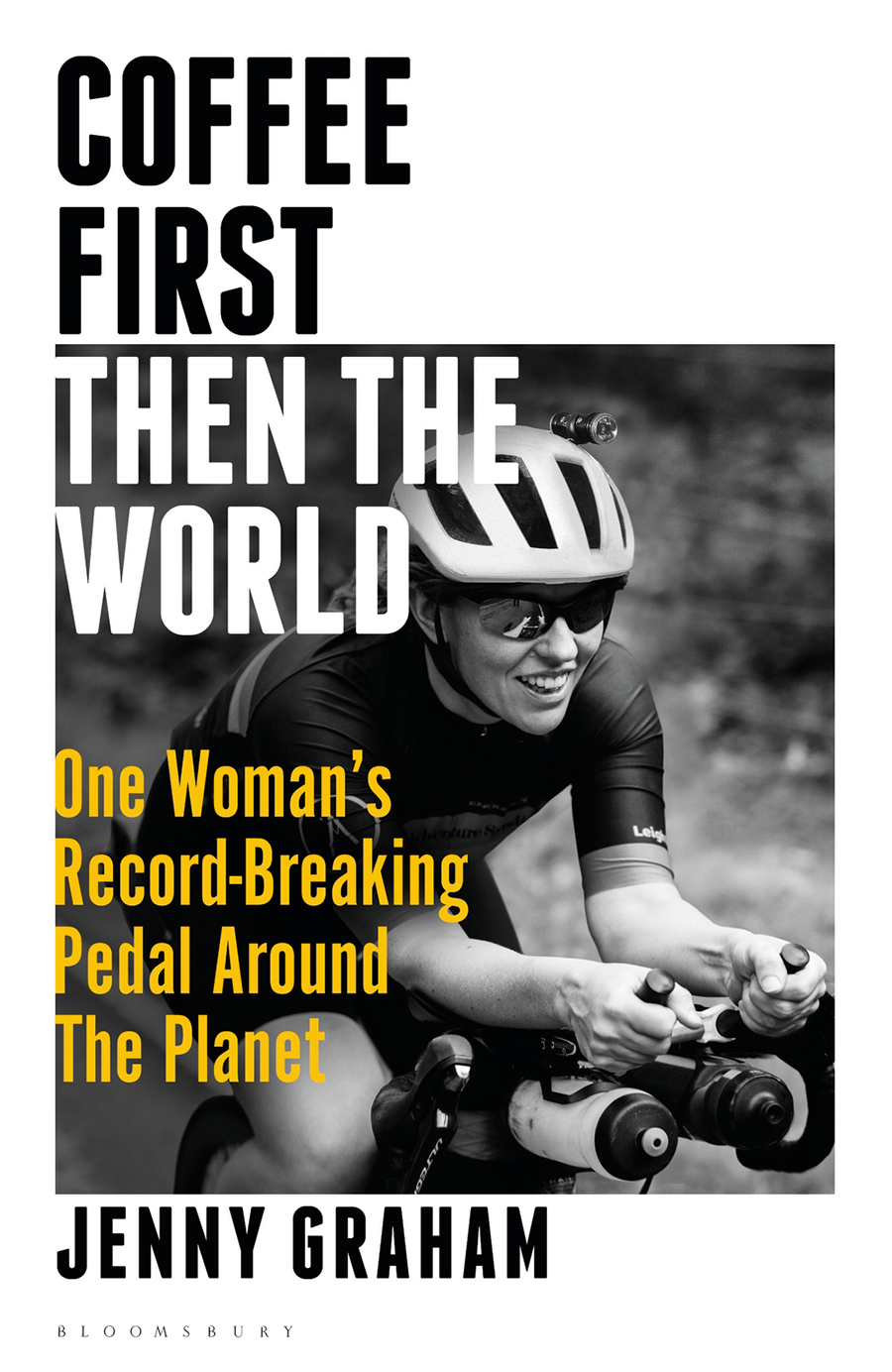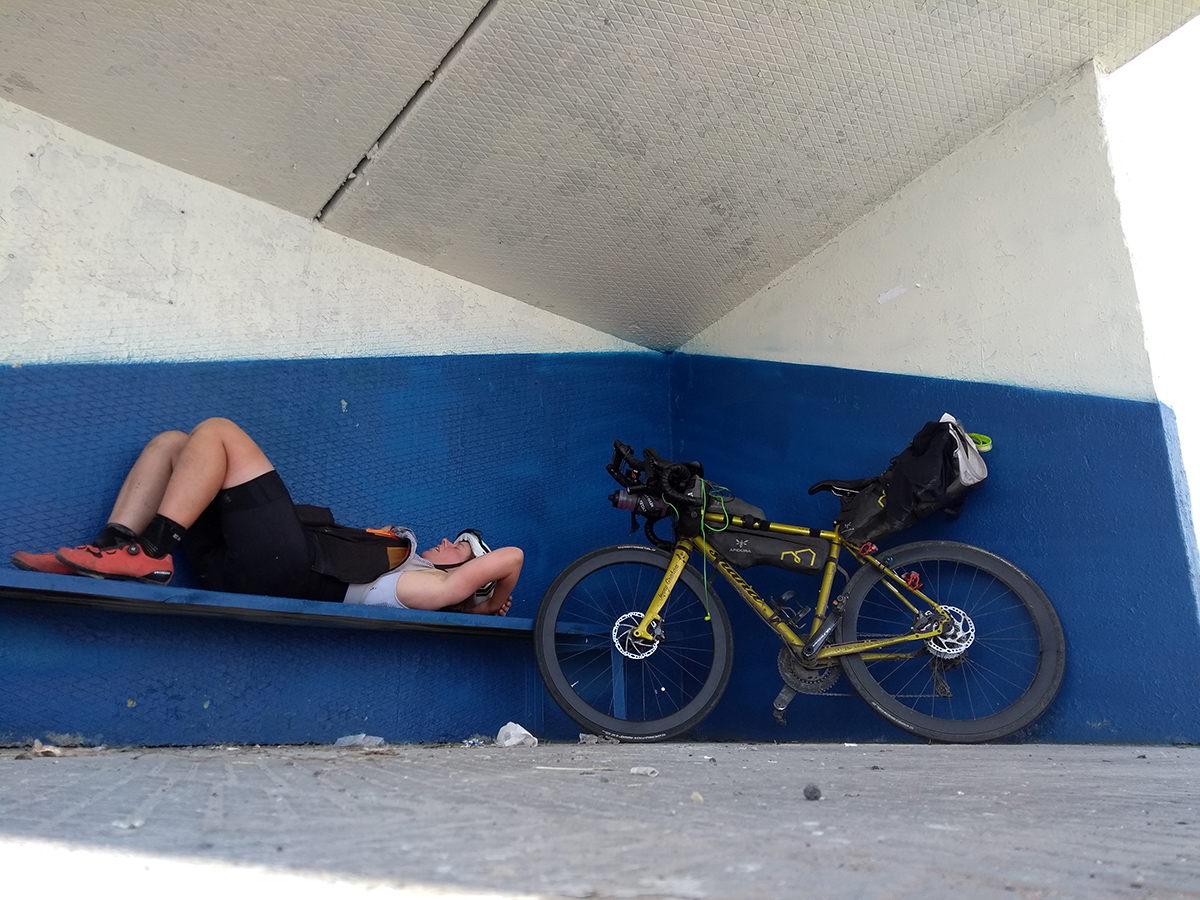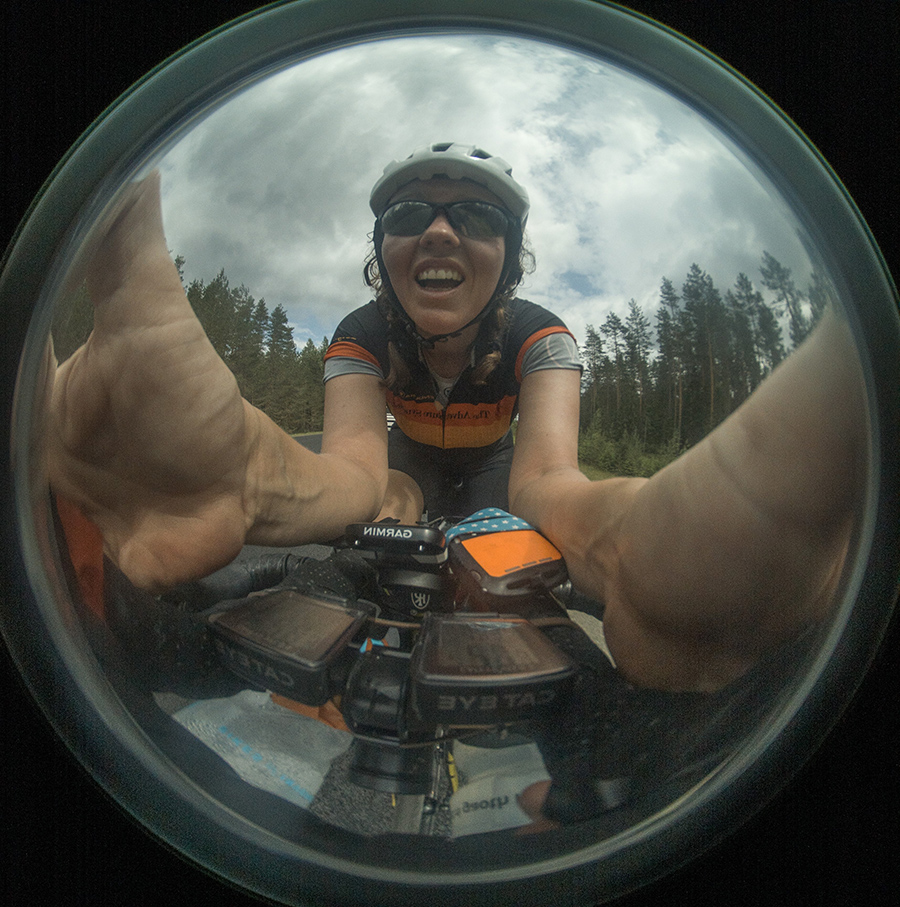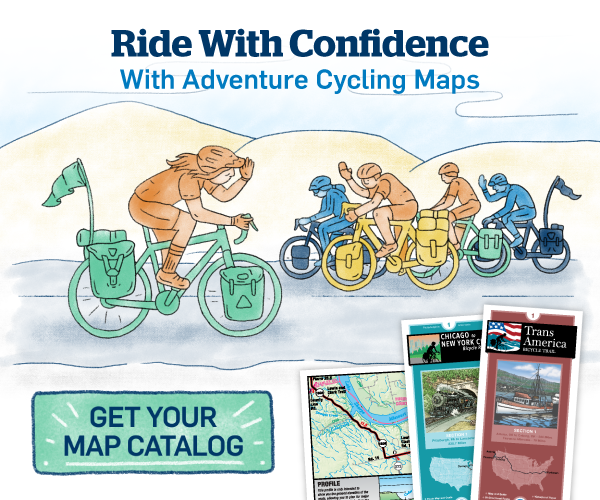Eight Things I Learned from Round-The-World Record Holder Jenny Graham
In 2018, 38-year-old Scottish cyclist Jenny Graham broke the women’s world record for cycling around the world. In just 124 days she pedaled 18,000 miles across four continents, through wind, rain, snow, and heat. She rode unsupported, carrying her own gear and independently managing daily logistics of food, shelter, navigation, and bike maintenance. She often slept a few hours at a time in fields, bus shelters, or ditches. Other times she didn’t sleep at all, and simply rode through the night. As long as she found coffee in the morning, she was good to go! Graham recently wrote about this journey in her characteristically buoyant, completely astounding book, Coffee First, Then The World.
I’ve been familiar with Jenny Graham’s story – and her exuberant method of storytelling – since listening to her vivid 2021 Tough Girl Podcast. I don’t know if it’s the extreme nature of her achievements, or the sense that she’s genuinely grinning when she talks about experiences that sound absolutely terrible, but I’ve always found it difficult to hear Graham speak without feeling radically inspired. Her book had the same effect.
I enjoy reading memoirs by ultra-endurance cyclists because they’re stories of uniquely motivated people who wake up every day to pursue something difficult that they genuinely love. To achieve these pursuits, they have to systematically dismantle their own physical and emotional limitations. The struggle is real, and so is the allure. You could apply the lessons from these stories to any aspect of your life. And they’re certainly applicable to anyone dreaming up their next adventure cycling trip!
I’m not an endurance cyclist, but I do spend several months of most years engaged in human-powered journeys. So when Graham’s publisher reached out to me with a copy of Coffee First, Then the World, I was actually in the middle of my own long distance cycling trip. (Specifically, I was cowering behind a water tower in the desert, waiting for a wind storm to pass.) It was an ideal time to absorb this book and see what I could learn from it. The following are a few of my favorite gems.

1. A man sitting in baked beans for 100 hours can inspire you to achieve athletic greatness.
Graham attributes her initial interest in setting a world record to a television program she watched when she was ten. The Record Breakers show featured various record breakers, including a man who broke the world record for the longest bean bath. Graham writes, “...it was the first time I remember questioning what action was needed between having the dream and making it happen.”
After I read this part – which was only on the third page of text – I had to put the book down for a few minutes. I spent the time staring off into space. I mean, consider the implications! If bean bathing inspired Graham to bike around the world, what could it inspire me to do? Or you? Or anyone?
2. Radical persistence gets radical results.
When Graham realized she wanted to spend more time outdoors, she flipped open the yellow pages and called every outdoor center within 25 miles, asking if she could volunteer. They all said no.
The next day, she called them all again to see if anyone had changed their minds. She was more than halfway through her list before someone finally said yes. This volunteer position eventually led to a job, a career, and a world record.
That kind of persistence is extraordinary. And yet, anyone could do it.
3. It’s possible to train every day for a goal you’re not yet aware of.
This aspect of Graham’s life path makes her eventual round-the-world achievement seem eerily like destiny, but in reality it’s a destiny that she created herself by working for it.
Graham pursued every possible opportunity, created new ones, and then used each new resource to the absolute maximum. After volunteering, working outdoors, and riding hard for years, she was finally offered a dream opportunity: a free year of coaching by cycling coach John Hampshire. She jumped at the chance. “This. Was. It.” Graham writes, “I didn’t yet know what “it” was, but I did know it had the potential to be life-changing…”
“It” became training for the world record.
Graham pursued what she loved until it led to a goal, and then she pursued that goal. I think this really speaks to the value of throwing yourself into whatever it is you truly love. Eventually new opportunities and new goals will naturally emerge.
4. Sardine tin oil can be chain lube.
Now we know!
5. Failure can be a driving force.
The first time Graham competed in a cycling race, she had to drop out. But instead of seeing this moment as a defeat, she used it to push her further. “The ride had ignited something and would become a driving force for me to make sure my body was strong enough for future missions.”
There is such a brilliance to this mindset, because it means that every failure can be used as a resource. As a person who fails a lot, I was delighted to read this part. Bring on the failures!

6. You CAN pee while riding!
Graham offers a detailed tutorial of how to achieve this feat – you’ll have to read the book to learn the full routine, which is quite specific. The only Big Reveal I’ll share is that Graham didn’t learn to do this in order to bike faster, as you might expect, but to avoid snakes.
It’s up to you to find the lesson in this one.
7. Sometimes a bigger challenge is easier than a smaller one.
Cycling around the world includes flying across oceans, and unsupported riders have to manage all their own logistics for flights and visas. The race clock runs the whole time – including time waiting in the airport or sitting on the plane.
Graham motivated herself to maximize her travel time by planning extremely thin margins to reach each new point of transportation. She often ended up pushing herself to the limit and riding through the night to get to the next plane, border crossing, or boat.
On one occasion, though, she decided to give herself a larger margin of time to reach a ferry. Instead of enjoying the extra time, she found it to be more challenging. “With no deadline to chase I mentally switched off," she writes. “There was no heroic effort, just a combination of subtle resistances…this would grind me down…”
I think this speaks to the nature of genuine motivation. Graham wasn’t motivated by staying inside her comfort zone. She wanted to race the world! Comfort didn’t drive her the way racing did.
This made me wonder how many times people fail to achieve their goals simply because their goals are too small. Sometimes the larger, more difficult goal, might be more closely aligned with the motivation that drives you to achieve it.
8. You can find perspective in frozen eyeballs.
This was a repeated theme, and every time I read it, I had to sigh. Oh, Jenny Graham.
Midway through her trip, Graham listened to an audio book called The Worst Journey in the World, by Apsley Cherry-Garrard. The book described a 1922 expedition to the South Pole, where crew members endured “weeks of darkness…shattered teeth…and frozen eyeballs.”
Throughout the worst moments of her own trip, Graham motivated herself by recalling the frozen eyeballs of the South Pole expedition. She writes, “There’s nothing like a bit of perspective…I had a new benchmark and in comparison my life was looking pretty peachy.”
So there you have it. Wherever you are, whatever you’re doing, if your eyeballs aren’t frozen, then you’re doing GREAT!



Comments
Having had my eye lids freeze together while bicycling in Brooklyn, NY,I can relate! Well, almost. I prefer a slow roll with time to taste - and smell the coffee. But still a pretty amazing accomplishment.
Forgot Password?
Enter your email address and we'll send you an email that will allow you to reset it. If you no longer have access to the email address call our memberships department at (800) 755-2453 or email us at memberships@adventurecycling.org.
Not Registered? Create Account Now.